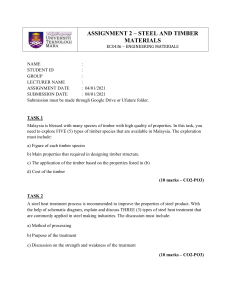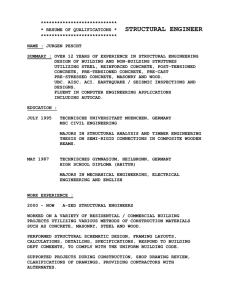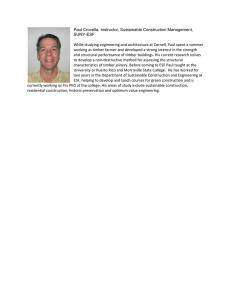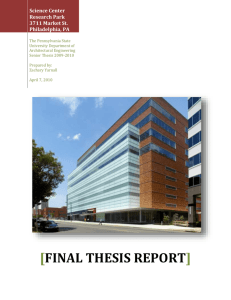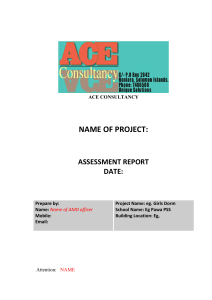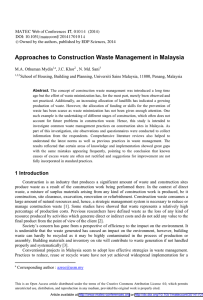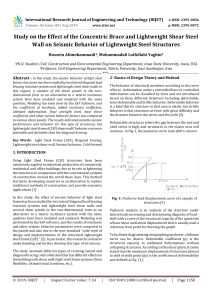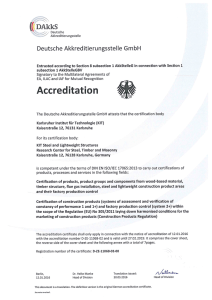Structural Analysis Homework: Timber Frame Design
advertisement
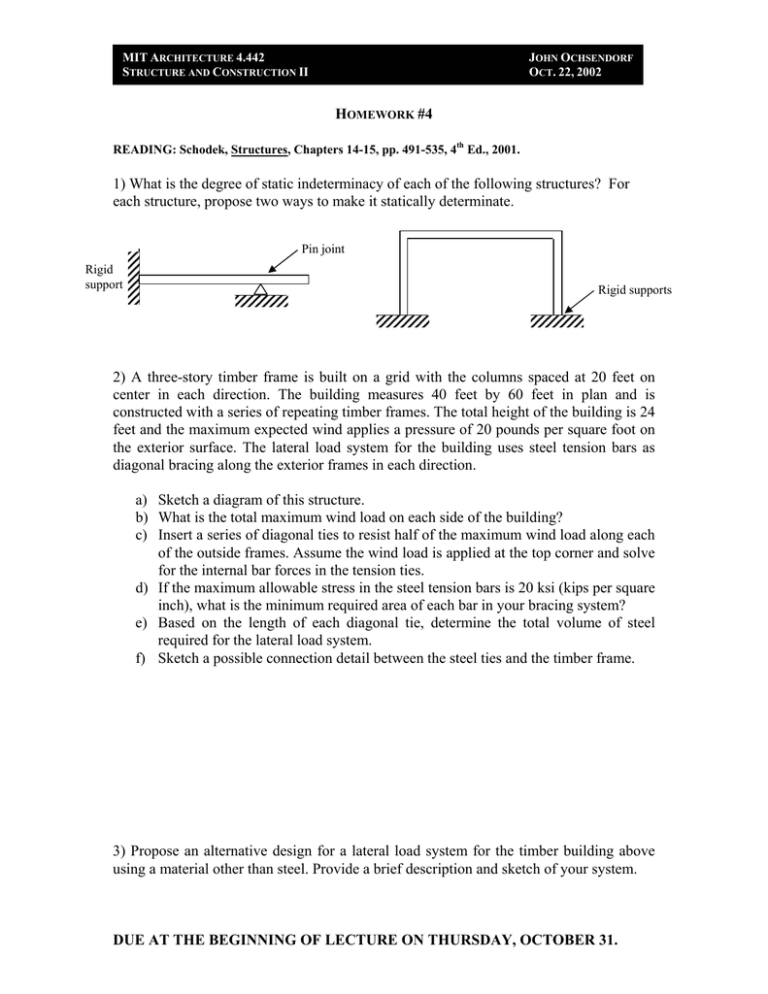
MIT ARCHITECTURE 4.442 STRUCTURE AND CONSTRUCTION II JOHN OCHSENDORF OCT. 22, 2002 HOMEWORK #4 READING: Schodek, Structures, Chapters 14-15, pp. 491-535, 4th Ed., 2001. 1) What is the degree of static indeterminacy of each of the following structures? For each structure, propose two ways to make it statically determinate. Pin joint Rigid support Rigid supports 2) A three-story timber frame is built on a grid with the columns spaced at 20 feet on center in each direction. The building measures 40 feet by 60 feet in plan and is constructed with a series of repeating timber frames. The total height of the building is 24 feet and the maximum expected wind applies a pressure of 20 pounds per square foot on the exterior surface. The lateral load system for the building uses steel tension bars as diagonal bracing along the exterior frames in each direction. a) Sketch a diagram of this structure. b) What is the total maximum wind load on each side of the building? c) Insert a series of diagonal ties to resist half of the maximum wind load along each of the outside frames. Assume the wind load is applied at the top corner and solve for the internal bar forces in the tension ties. d) If the maximum allowable stress in the steel tension bars is 20 ksi (kips per square inch), what is the minimum required area of each bar in your bracing system? e) Based on the length of each diagonal tie, determine the total volume of steel required for the lateral load system. f) Sketch a possible connection detail between the steel ties and the timber frame. 3) Propose an alternative design for a lateral load system for the timber building above using a material other than steel. Provide a brief description and sketch of your system. DUE AT THE BEGINNING OF LECTURE ON THURSDAY, OCTOBER 31.
